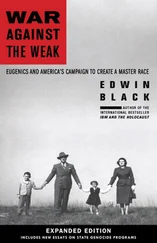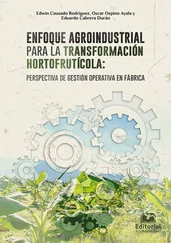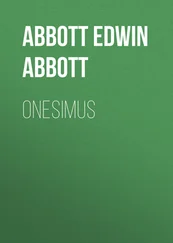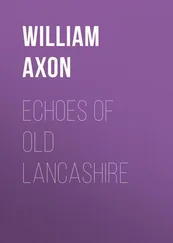Edwin Waugh - Lancashire Sketches
Здесь есть возможность читать онлайн «Edwin Waugh - Lancashire Sketches» — ознакомительный отрывок электронной книги совершенно бесплатно, а после прочтения отрывка купить полную версию. В некоторых случаях можно слушать аудио, скачать через торрент в формате fb2 и присутствует краткое содержание. Жанр: Путешествия и география, foreign_antique, foreign_prose, на английском языке. Описание произведения, (предисловие) а так же отзывы посетителей доступны на портале библиотеки ЛибКат.
- Название:Lancashire Sketches
- Автор:
- Жанр:
- Год:неизвестен
- ISBN:нет данных
- Рейтинг книги:4 / 5. Голосов: 1
-
Избранное:Добавить в избранное
- Отзывы:
-
Ваша оценка:
- 80
- 1
- 2
- 3
- 4
- 5
Lancashire Sketches: краткое содержание, описание и аннотация
Предлагаем к чтению аннотацию, описание, краткое содержание или предисловие (зависит от того, что написал сам автор книги «Lancashire Sketches»). Если вы не нашли необходимую информацию о книге — напишите в комментариях, мы постараемся отыскать её.
Lancashire Sketches — читать онлайн ознакомительный отрывок
Ниже представлен текст книги, разбитый по страницам. Система сохранения места последней прочитанной страницы, позволяет с удобством читать онлайн бесплатно книгу «Lancashire Sketches», без необходимости каждый раз заново искать на чём Вы остановились. Поставьте закладку, и сможете в любой момент перейти на страницу, на которой закончили чтение.
Интервал:
Закладка:
I reached home about ten o'clock, and, thinking over the incidents of my walk, I was a little impressed by one fact, suggested by the conversation at the roadside public-house, with "Jone o'Jeffrey's," and the old couple; namely, that there is a great outlying mass of dumb folk in this country, who—by low social condition, but more by lack of common education among them—are shut out from the chance of hearing much, and still more from the chance of understanding what little they do hear, respecting the political questions of the time; and, also, with respect to many other matters which are of essential importance to their welfare. Whether this ignorance which yet pervades a great proportion of the poor of England, is chargeable upon that multitude itself, or upon that part of the people whom more favourable circumstances have endowed with light and power, and who yet withhold these elements from their less fortunate fellows, or, whether it is chargeable upon neither, let casuists decide. The fact that this ignorance does exist among the poor of England, lies so plainly upon the surface of society, that it can only be denied by those who are incurious as to the condition of the humbler classes of this kingdom; or, by those who move in such exclusive circles of life, that they habitually ignore the conditions of human existence which lie outside of their own limits of society and sympathy; or, by such as wink their eyes to the truth of this matter, in order to work out some small purpose of their own. Wherever there is ignorance at all there is too much of it; and it cannot be too soon removed, especially by those who are wise enough to see the crippling malignities of its nature. That portion of our population which hears next to nothing, and understands less, of politics and the laws—any laws whatever—is nevertheless compelled to obey the laws, right or wrong, and whatever strange mutations they may be subject to; and is thus continually drifted to and fro by conflicting currents of legislation which it cannot see; currents of legislation which sometimes rise from sources where there exists, unfortunately, more love for ruling than for enlightening. Many changes come over the social condition of this blind multitude, they know not whence, nor how, nor why. The old song says—
Remember, when the judgment's weak,
The prejudice is strong.
And, certainly, that part of the popular voice which is raised upon questions respecting which it has little or no sound information, must be considerably swayed by prejudice, and by that erratic play of unenlightened feeling, which has no safer government than the ephemeral circumstances which chase each other off the field of time. Shrewd demagogues know well how prostrate is the position of this uneducated "mass," as it is called; and they have a stock of old-fashioned tricks, by which they can move it to their own ends "as easy as lying." He who knows the touches of this passive instrument, can make it discourse the music he desires; and, unhappily, that is not always airs from heaven.
'Tis the time's plague,
When madmen lead the blind.
Now, the educated classes have all the wide field of ancient learning open to them—they can pasture where they will; and, the stream of present knowledge rushing by, they can drink as they list. Whatever is doing in politics, too, they hear of, whilst these things are yet matters of public dispute; and, in some degree, they understand and see the drift of them, and, therefore, can throw such influence as in them lies into one or the other scale of the matter. This boasted out-door parliament—this free expression of public opinion in England, however, as I have said before, goes no farther down among the people than education goes. Below that point lies a land of fretful slaves, dungeoned off by ignorance from the avenues which lead to freedom; and they drag out their lives in unwilling subservience to a legislation which is beyond their influence. Their ignorance keeps them dumb; and, therefore, their condition and wants are neither so well known, nor so often nor so well expressed as those of the educated classes. They seldom complain, however, until the state of affairs drives them to great extremity, and then their principal exponents are mobs, and uproars of desperation. It is plain that where there is society there must be law, and obedience to that law must be enforced, even among those who know nothing of the law, as well as those who defy it; but my principal quarrel is with that ignorant condition of theirs which shuts them out from any reasonable hope of exercising their rights as men and citizens. And so long as that ignorance is unnecessarily continued, the very enforcement of laws among them, the nature of which they have no chance of knowing, looks, to me, like injustice. I see a remarkable difference, however, between the majority of popular movements which have agitated the people for some time past, and that successful one—the repeal of the corn-laws. The agitation of that question, I believe, awakened and enlisted a greater breadth of the understanding sympathy of the nation, among all classes, than was ever brought together upon any one popular question which has been agitated within the memory of man. But it did more than this—and herein lies one of the foundationstones which shall hold it firm awhile, I think; since it has passed into law, its effects have most efficiently convinced that uneducated multitude of the labouring poor, who could not very well understand, and did not care much for the mere disputation of the question. Everybody has a stomach of some sort—and it frequently happens that when the brain is not very active the stomach is particularly so—so that, where it could not penetrate the understanding, it has by this time triumphantly reached the stomach, and now sits there, smiling defiance to any kind of sophistry that would coax it thenceforth again. The loaves of free trade followed the tracts of the League, and the hopes of protectionist philosophers are likely to be "adjourned sine die ," for this generation at least—perhaps for ever; for the fog is clearing up a little, and I think I see, in the distance, a better education getting ready for the next generation.
O for the coming of that glorious time
When, prizing knowledge as her noblest wealth
And best protection, this imperial realm,
While she exacts allegiance, shall admit
An obligation on her part, to teach
Them who are born to serve her and obey
Binding herself by statute to secure
For all her children whom her soil maintains,
The rudiments of letters.
The Cottage of Tim Bobbin, and the Village of Milnrow
If thou on men, their works and ways,
Canst throw uncommon light, man;
Here lies wha weel had won thy praise,
For Matthew was a bright man.
If thou art staunch without a stain,
Like the unchanging blue, man;
This was a kinsman o' thy ain,
For Matthew was a true man.
If thou hast wit, and fun, and fire,
And ne'er good wine did fear, man;
This was thy billie, dam, and sire,
For Matthew was a queer man.
It is not in its large towns that the true type of the natives of Lancashire can be seen. The character of its town population is greatly modified by mixture with settlers from distant quarters. Not so in the country parts, because the tenancy of land, and employment upon it, are sufficiently competed by the natives; and while temptations to change of settlement are fewer, the difficulties in the way of changing settlement are greater there than in towns. Country people, too, stick to their old sod, with hereditary love, as long as they can keep soul and body together upon it, in any honest way. As numbers begin to press upon the means of living, the surplus fights its way in cities, or in foreign lands; or lingers out a miserable life in neglected corners, for want of work, and want of means to fly, in time, to a market where it might, at least, exchange its labour for its living. The growth of manufacture and railways, and the inroads of hordes of destitute, down-trodden Irish, are stirring up Lancashire, and changing its features, in a surprising way; and this change is rapidly augmenting by a varied infusion of new human elements, attracted from all quarters of the kingdom by the immense increase of capital, boldly and promptly embarked in new inventions, and ever-developing appliances of science, by a people remarkable for enterprise and industry. Still, he who wishes to see the genuine descendants of those old Saxons who came over here some fourteen hundred years ago, to help the Britons of that day to fight for their land, and remained to farm it, and govern in it, let them ramble through the villages on the western side of Blackstone Edge. He will there find the open manners, the independent bearing, the steady perseverance, and that manly sense of right and wrong, which characterised their Teutonic forefathers. There, too, he will find the fair comeliness, and massive physical constitution of those broad-shouldered farmer-warriors, who made a smiling England out of an island of forests and bogs—who felled the woods, and drained the marshes, and pastured their quiet kine in the ancient lair of the wild bull, the boar, and the wolf.
Читать дальшеИнтервал:
Закладка:
Похожие книги на «Lancashire Sketches»
Представляем Вашему вниманию похожие книги на «Lancashire Sketches» списком для выбора. Мы отобрали схожую по названию и смыслу литературу в надежде предоставить читателям больше вариантов отыскать новые, интересные, ещё непрочитанные произведения.
Обсуждение, отзывы о книге «Lancashire Sketches» и просто собственные мнения читателей. Оставьте ваши комментарии, напишите, что Вы думаете о произведении, его смысле или главных героях. Укажите что конкретно понравилось, а что нет, и почему Вы так считаете.












